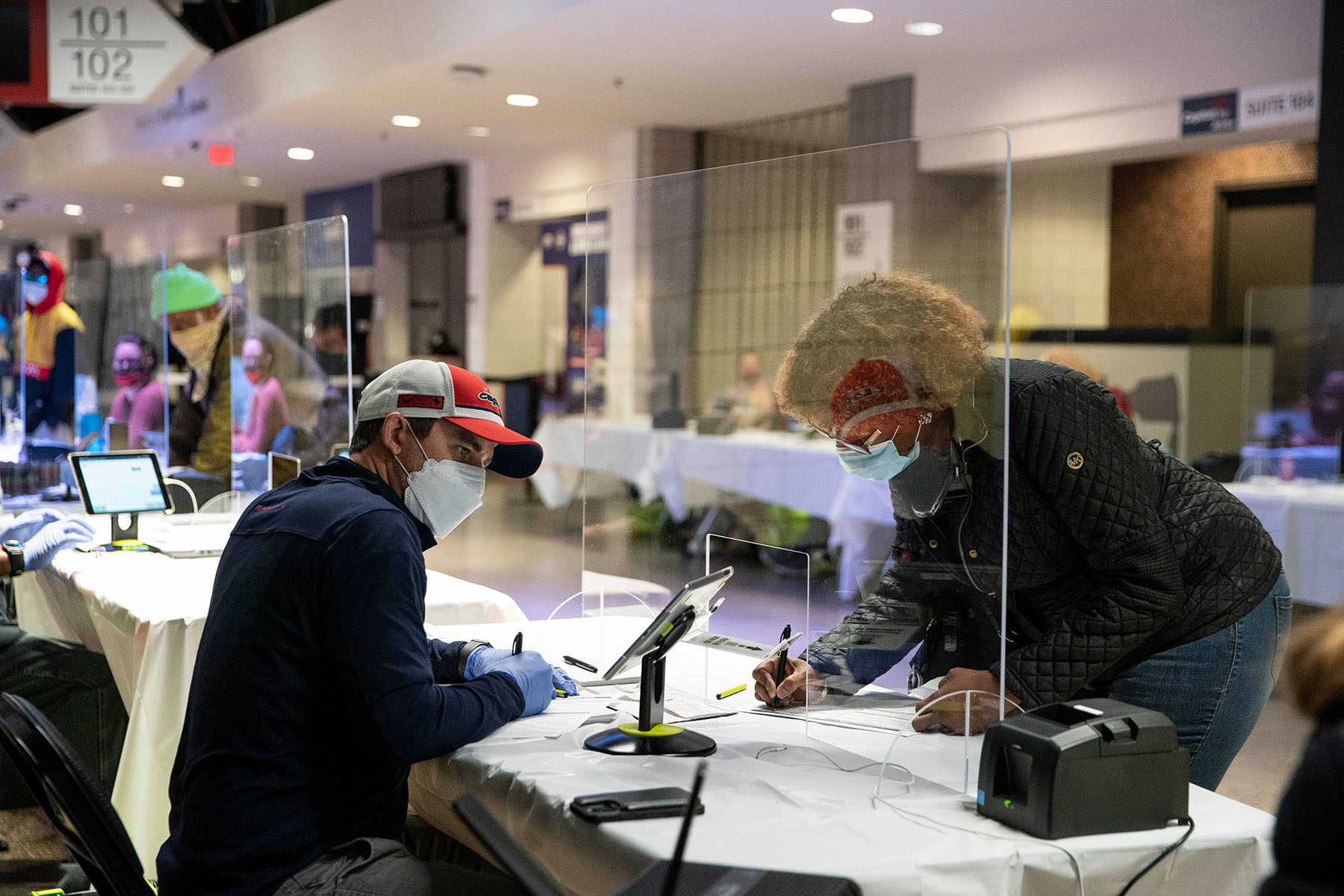Women voters over 50 are dissatisfied, particularly with the state of the economy, a new AARP poll released Wednesday found. These women account for more than a quarter of all registered voters and, with a high voter turnout rate, they have also accounted for nearly a third of all ballots in recent elections. Yet, despite their influence, the vast majority are disgruntled with their elected leaders and have yet to decide who they will vote for in November.
“Women over 50+ may not only be the decision makers in their households, they may also be the decision makers of the midterm elections,” Margie Omero, principal at GBAO, a public opinion research firm, said in a statement accompanying the poll results.
The survey, conducted between February and March, found that these women are most worried about rising living costs and insufficient savings, and the majority said the economy is not working well for them. Nearly half of respondents ranked “rising cost of living” as the most important issue facing the country. The second most pressing issue for them is the lack of unity in the country — ranked above crime, immigration, COVID-19 and government spending.
Christine Matthews, president of Bellwether Research, said at an AARP-hosted discussion of the survey results that older women are “arguably the most important voting cohort” in 2022. And they are not happy.
The majority of women, regardless of political affiliation, agreed that their elected officials deserved failing grades for their response to issues, including rising prices, immigration, crime, the wage gap, race relations, health care, voting access and others. For men, Republicans were significantly more likely than Democrats to give leaders a poor grade. For most issues, Republican and Independent women over 50 were more likely than their Democratic counterparts to give elected officials an “F,” the survey found.
Despite being a reliable voting bloc, more than 80 percent of the women who responded to the poll said they still do not know which candidates they will support. More than 60 percent said they would decide in the weeks or even days before Election Day.
“They are extremely worried about the impact rising prices, particularly groceries, are having on their budget and their ability to save for retirement,” Matthews said in a statement when the results were released. “They want politicians to work together to find solutions to inflation and other key issues — but they are not pleased with what they see.”
Economic experts said they were not surprised by these results, as older women have been long been voicing these concerns. Women historically have had less access to traditional pensions, and when they do, they often have less savings because of pay gaps or years when they weren’t in the workforce due to caregiving. They have more intermittent attachment to the labor force and have longer life expectancies in retirement. Social Security benefits for women retirees are 20 percent lower than for men on average.
“[Older women’s] votes are often taken for granted and their concerns are ignored or not truly understood,” said Nancy LeaMond, the chief advocacy and engagement officer at AARP.
David McLennan, a political science professor and director of the Meredith Poll at Meredith College, said women have traditionally been concerned with economic security, especially those who are retired and single.
“Given that inflation is a pressing issue for most Americans, it is no surprise that older women are even more acutely concerned about their ability to afford necessities such as housing, food and medical care for the remainder of their lives,” McLennan said. “There is an opportunity for House and Senate candidates to appeal to this group of voters through their campaign messages on shoring up Social Security, controlling costs for prescription drugs and reducing inflation that is cutting into their retirement and benefits.”
Gwendolyn Tedeschi, an economics professor at North Central College, said: “My own mother always assumed that Social Security wouldn’t be there by the time she retired. Since women generally live longer than men, it doesn’t surprise me that they are more concerned.”
The survey responses were fairly consistent across age, income, and race and ethnicity. One notable exception was that for Black women, racism ranked the highest on the list of concerns.
Matthews, who spent time speaking with women in focus groups, said the country’s political polarization was almost always a hot topic. Their biggest hope and dream for the future — across the board — was that politicians would show more respect for each other, she said. Conservative women, in particular, indicated that the need to be respectful was “significantly more important” than for those who identified as moderate or liberal, Matthews added.
Kristen Soltis Anderson, a founding partner of polling and analytics firm Echelon Insights, said at the AARP discussion that these women’s concerns extend to the livelihoods of their children and grandchildren. When asked if they agreed that they were worried about the state of the world they’ve left for future generations, 81 percent of respondents said they “agree” or “strongly agree.”
“One thing that’s so remarkable about this current moment is the way that cost of living is just cutting across every demographic line,” Anderson said. “Cost of living is a challenge whether you are 19 years old, just starting off in the workforce, and are trying to figure out how to pay your rent, or if you are retired, on a fixed income and you’re trying to pay your rent.”
Matthews emphasized that older women are tired of out-of-touch politicians, abstract campaign promises and hostility permeating the political climate.
“Whatever objective measures there are that say the economy is booming or doing well, whether it’s low unemployment or other measurements — that is not how these women are experiencing the economy,” Matthews said. “So you need to meet them where they are. Address their concerns and discuss the specific ways you would work constructively on these issues and not just use these measures as a hammer to hit your opponent over the head … Women will be very exasperated by that.”
Matthews offered another word of advice to candidates running for elected office this year: talk to these women, figure out their day-to-day concerns and tell them what you can do, not what your opponent cannot do. For example, she said, empathize with constituents’ struggle to put food on the table.
“Don’t be caught unaware,” Matthews said. “The cost of beef is one of the highest, steepest, most increasing prices among the food items — so know what a pound of hamburger costs.”







